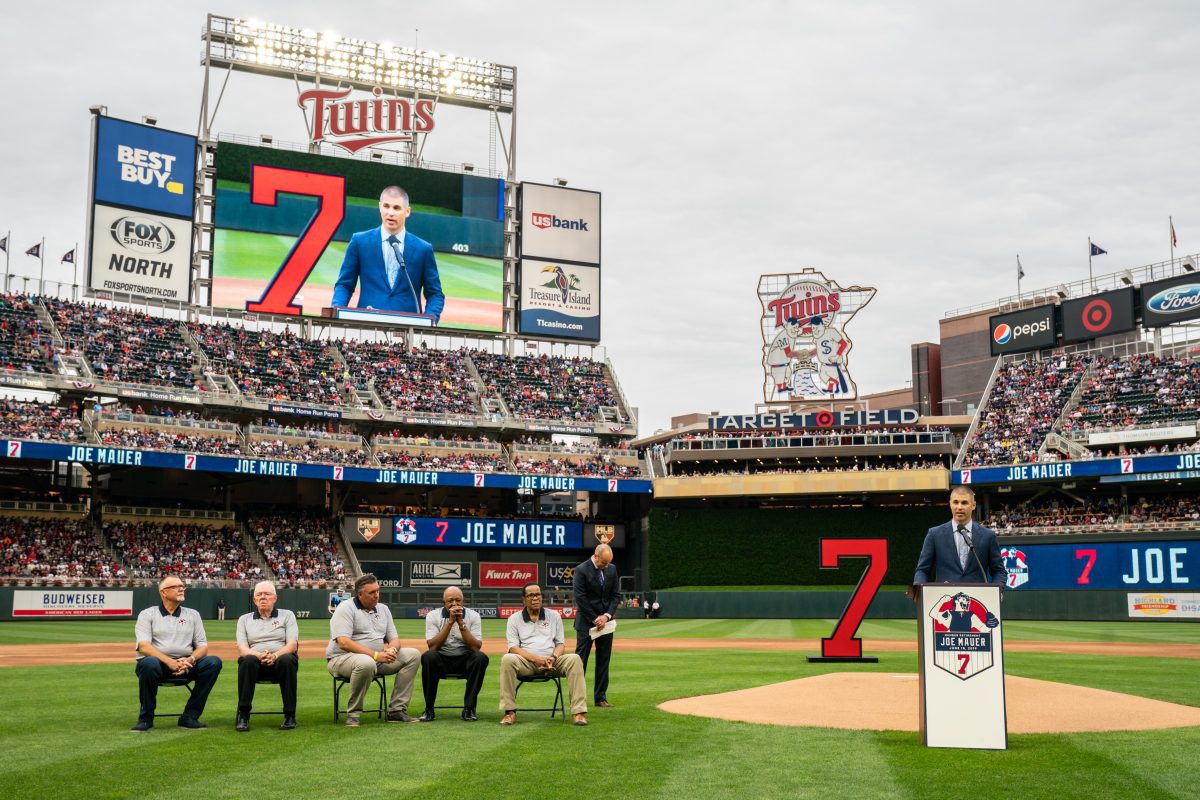



PHILADELPHIA, PA – Bill Mele started working as an MLB scout in 1987 and had a 32-year career working for the Twins, Yankees, and Padres. Arguably, the most pivotal part of his career was when the Twins owned the first overall pick in the 2001 draft.
The decision came down to two players: Minnesota native Joe Mauer and University of Southern California ace Mark Prior. Mele was the Twins’ regional scout covering southern California. Because of this, Mele was responsible for gaining as much information on Prior as possible.
“[From] Labor Day 2000 to Memorial Day [2001], any time Prior toed the rubber in Southern California up to Fresno, I was in the park even if it was an intrasquad game,” Mele said.
Prior was born and raised in San Diego. He attended Vanderbilt for one year, where he was a second-team Freshman All-American in 1999, before transferring to the University of Southern California. As a junior at USC, Prior boasted an impressive 13-1 record with a 1.49 earned-run average and won Pac-10 pitcher of the year.
Prior’s pitching coach, Tom House, worked with names like Nolan Ryan and Randy Johnson and described Prior as “the most complete, polished pitcher to ever come out of the draft” in a 2000 ESPN article.
So why was he not the consensus number-one pick?
Many factors go into these franchise-altering decisions that organizations must make on draft day. These picks come down to far more than on-field production.
In this specific instance, the fact that Mauer grew up in St. Paul, Minnesota, “didn’t hurt,” Mele said.
During the 2001 draft process, front office deliberations with both prospects’ agents played a crucial role in the organization’s decision to go with Mauer.
Hinting at but not describing exact problems, Mele said, “When [the front office] started talking to agents, I think that was the tiebreaker.”
The Twins had trouble signing draft picks leading up to the 2001 draft. Most notably, Minnesota drafted Travis Lee second overall in the 1996 draft. Lee was later signed by the Arizona Diamondbacks in 1998 after never playing a major league or minor league game for the Twins.
“The consensus best player on the board was Mark Prior, but his bonus demands were unclear, and Minnesota has a bad history of being unable to sign draft picks,” ESPN’s John Sickels said.
The Twins drafted Mauer with the first overall pick that year, and he went on to have a hall-of-fame career in Minnesota.
Change in scouting players throughout the years
When scouting players, Mele noted the difficulty of balancing a player’s statistical production with intangibles.
“I used to put a lot on [intangibles] because you could see the physical tools, the current ability level, the athleticism,” Mele said. “But what you couldn’t see is the confidence, the poise, any type of off-field habits, the awareness, the temperament, the character, the adjustability, the self-control, the tenacity.”
Over Mele’s 32-year career as a scout, he noticed a shift in player evaluation. This was highlighted in the 2011 Oscar-nominated movie Moneyball.
“[The] last few years when the push was more analytical, nobody talked about the intangibles,” he said.
During this time, scouting largely transitioned from in-person to virtual. This only exacerbated Mele’s feelings that a player’s intangible qualities were overlooked.
“I’ve never been to a ballpark where I didn’t come out with the information I needed,” he said, “there are not a lot of people in major league parks anymore as far as doing the scouting stuff.”
Recently, we have seen an influx of international talent coming to the MLB; consequently, MLB teams are heavily prioritizing international scouting. These international players have played baseball at the highest level in their respective countries, so they may be better prepared for the spotlight than players from America.
Opposed to scouting American players as developmental prospects, international players are being scouted for immediate impact.
Said Mele, “It is plug and play, you don’t have to send them to [the minors].”
Additionally, when signing international players, the teams have to put elements in place to help them succeed, which they would not have to do for American players.
“When you’re bringing people in from other countries and cultures, how are they going to adjust to new surroundings? Sometimes you gotta hire an interpreter and a driver; it ain’t just one guy,” Mele said.
Photo Credit: Former player Joe Mauer is honored as the Minnesota Twins retire his number at Target Field in Minneapolis, Minnesota. (Photo by Brace Hemmelgarn/Minnesota Twins/Getty Images)